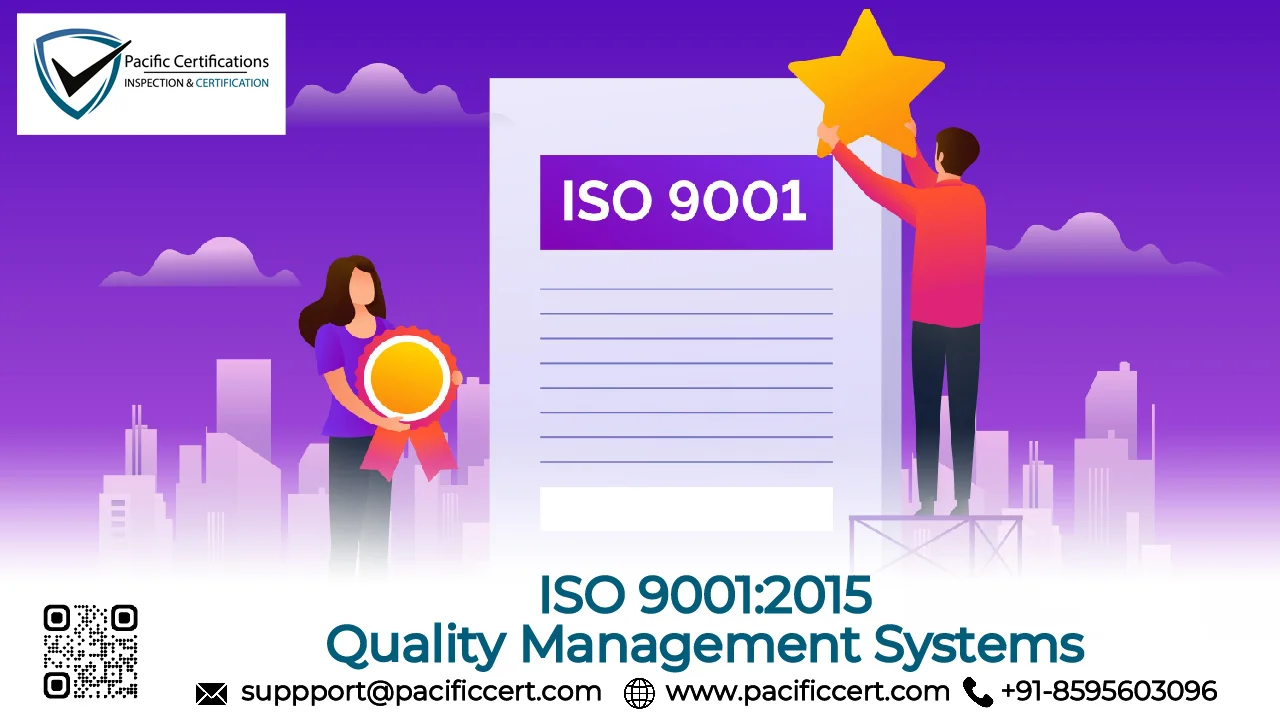business-services

July 21,2025 • 4 min read
Boost Your Business with ISO 9001 Certification

Introduction to ISO 9001 certification
When striving for quality and consistency, ISO 9001 certification offers a recognized standard for managing business processes. It helps organizations meet customer expectations through a structured quality management system. In this blog, we explore how ISO 9001 supports business growth, the role of ISO 9001 training, and how to approach ISO 9001 Certification Cost in your planning.
Why Businesses Invest in Quality Certifications?
Companies that aim for long-term performance often turn to structured systems. Certification brings clarity to responsibilities, reduces errors, and improves consistency in products or services. It also improves your business profile when bidding for new projects or entering new markets.
How Training Builds Internal Competence?
Employees need clear knowledge of how ISO 9001 works. ISO 9001 training helps internal teams understand how to align operations with certification requirements.
Training typically includes:
-
Understanding the standard and its clauses
-
Process mapping and risk-based thinking
-
Internal audit methods and documentation practices
Whether conducted internally or by external providers, these programs form the base for successful audits and long-term system maintenance.
Common Factors Behind Certification Costs
The ISO 9001 Certification Cost depends on business size, complexity, and readiness. There’s no fixed rate for certification since every company has unique systems and team structures.
Key cost factors include:
-
Employee time and involvement
-
Documentation preparation and updates
-
Pre-certification audits or consulting (if needed)
-
External certification body fees and follow-up audits
Larger organizations may spend more due to the wider audit scope. Still, even small businesses find the value of certification justifies the effort.
Seven Principles That Guide Quality
The system outlined by ISO 9001 is based on seven principles:
-
Customer focus
-
Leadership alignment
-
People engagement
-
Process-based management
-
Ongoing improvement
-
Fact-driven decisions
-
Supplier relationship planning
Applying these principles consistently builds a stronger foundation for growth and reliability.
Building a Certification-Ready System
To meet the audit requirements, businesses should:
-
Identify key risks, processes, and customer needs
-
Deliver ISO 9001 training to responsible team members
-
Develop clear documents and process maps
-
Conduct internal audits before external evaluation
-
Correct gaps, prepare records, and engage a certification body
The goal is not only passing the audit but building a repeatable process.
Comparing Cost to Long-Term Gains
While ISO 9001 Certification Cost can be a concern initially, businesses often see better process control, fewer complaints, and higher customer retention. Clients and partners also place more trust in certified suppliers, which often leads to new opportunities.
Conclusion
Whether you're a startup or an established enterprise, ISO 9001 certification helps align quality with business goals. It sets expectations across departments, improves your audit readiness, and shows clients your commitment to consistency. With the right ISO 9001 training and a clear understanding of ISO 9001 Certification Cost, your company can build systems that support both growth and quality.
Frequently Asked Questions
What is ISO 9001 certification?
It is a quality management standard used globally to help organizations build consistent processes. It outlines how to improve customer satisfaction and manage risk through a process-based approach.
Who needs ISO 9001 certification?
Any company that provides products or services—whether small or large—can pursue certification. It is widely used in manufacturing, healthcare, logistics, and professional services.
How much does ISO 9001 certification cost?
The ISO 9001 Certification Cost depends on the size and complexity of your operations. It includes internal resource time, training, audit preparation, and certification body fees.
How long does it take to get ISO 9001 certified?
Most companies can complete the process within 3 to 6 months, depending on current documentation, training needs, and resource availability.
What are the steps involved in getting ISO 9001 certified?
Key steps include understanding the requirements, delivering ISO 9001 training, implementing the system, performing internal audits, and scheduling a final audit by an accredited body.
What are the benefits of ISO 9001 certification?
Certification improves product quality, builds trust with clients, reduces waste, and opens access to larger contracts or regulated markets.
Who provides ISO 9001 certification?
Accredited certification bodies conduct external audits and issue certificates based on compliance with ISO 9001.
Pacific Certifications Details
User Profile
- Full name
- Pacific Certifications
- Email address
- pacificcert.seo@gmail.com
- Join Date
- 2025-07-21
- State
- Delhi
- City
- Delhi
- Pincode
- 110087
- Address
- W/116/B-28, Paschim Vihar, New Delhi, Delhi 110087
- Follow us on Facebook
- Follow us on Twitter
- Website Name
- https://pacificcert.com/iso-9001-2015-quality-management-system-certification/
- Bio
- Pacific Certifications is a leading independent certification body for ISO Certifications, accredited by ABIS.